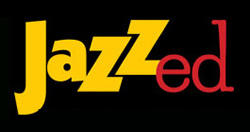 Local jazz initiative wins grant
Local jazz initiative wins grant
The Humanities Council of South Carolina has awarded a $6,750 grant to the Charleston Jazz Initiative to help fund the work of several internationally regarded jazz historians, musicians and scholars who will participate in the CJI’s Legends Festival, a presentation of the 2010 Piccolo Spoleto Festival.
CJI’s co-founder Dr. Karen Chandler, an associate professor of arts management in the College of Charleston School of the Arts, will serve as the project director for the grant. She and colleague Jack McCray are producers of the Legends Festival, working with a 30-member group of Charleston arts and cultural leaders.
 Jazz and its South Carolina Roots: A Jazz History and Education Model of the Charleston Jazz Initiative
Jazz and its South Carolina Roots: A Jazz History and Education Model of the Charleston Jazz Initiative
by Karen Chandler
JazzEd
May 2009
“Corner Pocket,” “Whirly Bird,” “Trouble in Mind,” “Ballin’ the Jack,” “Tuxedo Junction,” “Since I Fell for You,” and “Brother Blake.” What does each of these musical compositions have in common? Each is connected in some way to South Carolina and Charleston, in particular.
Written by the nearly 50-year veteran of the Basie band, Charlestonian Freddie Green’s “Corner Pocket” is a tune he composed which was later popularized by Sarah Vaughan under the title “Until I Met You.” Search YouTube for a 1965 Basie band performance of “Whirly Bird” featuring Eddie Lockjaw Davis on tenor sax and Charleston native Rufus “Speedy” Jones on a speedy drum solo.
Jack McCray’s local jazz tops
by Jack McCray
Charleston Currents
Nov. 3, 2008
Jack McCray, a writer based in Charleston and co-principal of the Charleston Jazz Initiative, offers these five little-known facts about Charleston’s place in jazz history:
1. Deep roots. With coastal South Carolina being the first place where Negro spirituals were documented, Charleston’s jazz roots are as deep as any other cradle of jazz.
2. Nurseries. A group home for boys and girls, the famed Jenkins Orphanage (1891-present), and a freedmen’s school founded after the Civil War, the Avery Normal Institute (1865-1954), combined resources in the late 19th century to plant the seeds that led to Jenkins’ becoming one of the most prominent jazz nurseries in America.
Celebrating the Sidemen
 by Dan Dickenson
by Dan Dickenson
College of Charleston Magazine
Winter 2008
Aficionados of jazz know that the work in this musical genre is defined as much by the style and personality of the musicians as it is by the arrangement of musical notes. In fact, jazz tunes aren’t supposed to sound like a particular song, but like the individual artists, which is why the personalities behind the music are so integral to the sound itself, and essentially why the work that Karen Chandler and her colleague Jack McCray are conducting is so crucial.
Associate professor of arts management, pianist and arts entrepreneur, Chandler is a font of energy who in recent years has directed much of her talent and effort toward reclaiming an important aspect of Charleston’s musical heritage. The Charleston Jazz Initiative (CJI) grew out of an event she helped organize four years ago, which was a part of a semester-long
retrospective on jazz. When that effort unveiled significant links between locally trained musicians and jazz luminaries such as Duke Ellington, Chandler and McCray – a local writer and longtime jazz devotee – joined forces to follow the threads.
 Talented orchestra brings local jazz to the spotlight
Talented orchestra brings local jazz to the spotlight
March 27, 2008
To say Charlton Singleton is a musician is basically the same as saying that an alligator is a reptile or that the sea is salty.
I truly believe that if one were to look at Singleton’s DNA under a microscope, one would see actual musical notes connecting the strands together. All through high school and college, and on into the working world, Singleton has made music his focus. He can be seen playing in the popular local cover band Plane Jane, and he has been a music educator for several years, first in the local public school system, and now with the College of Charleston.